- Home
- Linda Newbery
Set In Stone Page 4
Set In Stone Read online
Page 4
The glass doors to the drawing room were unlocked; I guided him through them, to avoid passing Marianne, who was now weeping in her sister’s arms. Samuel Godwin threw her a doubtful glance as we entered. He considered me, no doubt, rather matter-of-fact in my dealings with her. As for myself, I felt only irritation that Marianne had twice since his arrival shown herself at her most hysterical. Knowing her as I did, I suspected that she was quite deliberately making herself the centre of attention.
Chapter Six
A Solitary Man
At one minute to ten precisely, I was standing outside Mr Farrow’s study door. Anxious to make as good an impression as I had evidently made on our first meeting, I had washed my hands, brushed my hair and smoothed it down with water; I was determined that Mr Farrow should have no reason to fault my turnout or manners. Yet, fiddling with my necktie, and checking that my fingernails were perfectly clean, I could not help feeling like a schoolboy summoned to his headmaster.
I rapped on the door, hoping to convey a confidence I did not feel.
‘Enter,’ called a deep voice from within.
I did so. Mr Farrow, seated at a desk by the window, rose to his feet as I approached. He was a large man, almost burly; I remembered my surprise, on that first meeting in London, for I had expected him to be considerably older. My mental picture, derived only from the wording of the advertisement he had placed, the implication of country seclusion, and the hotel address in a discreetly expensive part of Kensington, was of someone grey-haired and retiring - slightly built, and cautious of his health, formidable in terms of intellect and status. This picture had proved wrong in almost every respect. Mr Farrow, vigorous, without a trace of grey in his thick dark hair, could not have been much above forty. He was a handsome, sensual-looking man: strong featured, with full lips, and eyes of the darkest brown.
‘Good morning, Mr Godwin,’ he greeted me now. ‘I am very glad to welcome you to Fourwinds.’ Offering his hand, he shook mine in a painfully wringing grip. ‘I trust you are settling in comfortably? Everything is to your liking?’
‘Very much so, sir. It is a most beautiful house you have here.’
‘Have a seat, do.’ He gestured towards an upholstered carver chair by the fireplace, and turned his own - for he had been seated facing the window -towards it. Then he tugged at a bell pull. ‘I shall send for coffee. You will take coffee?’
‘Thank you, sir,’ I replied, though breakfast was so recent.
‘You were late arriving last night,’ he went on, with a quizzical lift of one eyebrow that turned statement into question.
I explained about the delayed train, the missed connection and my urge to walk; then a maidservant arrived and took the order for coffee. This gave me a few moments to assess my surroundings.
Every room I had so far seen contained small surprises; this, though intended as an office and with one wall lined with bookshelves, was entirely panelled in light wood, and featured several small alcoves and cupboards, as well as a most beautifully carved oak surround. A narrow oriel window allowed daylight to enter, and the occupant to glance outside, without offering the distraction of a larger window.
I was rather surprised that such a robust-looking individual as Mr Farrow should choose to spend his mornings shut away indoors; I should not have been surprised if his pleasure instead had been to ride early on the Downs, or to venture out with dogs and rifle. A case on the wall held guns - a rifle and two pistols - though all three looked unused and highly polished. I had seen no dog at Fourwinds, and felt a sudden pang of loss for Monty, our fox terrier at home. How he would have enjoyed exploring the countryside here, and chasing rabbits on the Downs! - but at this point I called myself sternly to attention.
A framed photograph of my employer’s two daughters stood upon his desk; another, of a lady in a broad-brimmed hat, holding an armful of lilies, I assumed to portray his deceased wife. When he saw me looking at it, I felt that some remark would be appropriate.
‘I am very sorry, sir,’ I ventured, ‘to learn of your sad loss - I mean of the late Mrs Farrow.’
‘Thank you. Yes, a sad loss indeed,’ he replied. He spread the fingers of one hand and examined them, his features pensive and downcast. After a moment, he added: ‘You have met my daughters, of course?’
‘Indeed I have. Such very charming young ladies—’ I began, but he went on, ‘It is mainly for Juliana’s benefit that I have engaged you, Mr Godwin. She has some modest artistic talent, I believe. She needs taking out of herself. She’s been ill, you know - she is physically well now, but has not recovered her spirits. She spends far too long brooding around the house. Your company, and a purposeful occupation, will restore her well-being.’
‘I assure you that I shall do all I can to engage her interest and encourage her talents,’ I replied. ‘And the younger Miss Farrow?’
My dream came back to me then, in all its intensity and strangeness. I wondered if Mr Farrow might offer some information about his other daughter’s peculiar changes of mood - for, surely, it was Marianne whose spirits most obviously needed reviving - but his reply was offhand.
‘Yes, of course. Marianne may as well join in the lessons, if it amuses her to do so. She has no aptitude, as far as I can see. But she likes to chatter on about nothing in particular - don’t let her make a nuisance of herself. Now, what d’you think of my house? You’re an artist. You must have an eye for details that would be missed by the casual visitor. A sense of aesthetics, of the guiding principles of a building. What do you say?’
I had already told him that I considered Fourwinds to be beautiful; evidently he required a fuller appreciation. ‘I have only just now had a brief tour, with Miss Agnew,’ I told him, ‘but I am very impressed. It is not at all what I expected. I very much admire the lightness and spaciousness inside, yet it stands so well in the landscape that one would hardly suspect it was newly built.’
I began to feel lost for words; architecture was not my discipline. Yet he seemed pleased. ‘Ah! You understand! Solidity and strength without; light and modernity within. I like to surround myself with beauty. Nothing mass-produced or factory-made here, Mr Godwin. I employ honest, skilled craftsmen. Attention to detail makes a harmonious whole. To combine the best of the new architectural thinking with traditional craftsmanship and materials, that was my aim. I flatter myself that I have not done too badly.’
‘Then you have fulfilled it most admirably - you and your architect,’ I assured him. ‘Truly, it is a beautiful building, but also a comfortable family home.’
As soon as I had uttered these words, I felt how tactless they were, how ill judged. The poor man’s hopes must have been dashed - to plan such a beautiful dwelling for his family, to imagine them living here happily, their voices in its rooms, their footfall on its stairs - only to have his wife snatched away to an early death! Mrs Farrow’s absence must be felt as a huge blank, a great emptiness at the heart of Fourwinds. Having experienced for myself the unfathomable loss, almost the mystery, of an untimely death in the family, I could guess at his feelings.
‘Well, I hope you’ll be happy here,’ he said, with no sign of reproach. ‘To be honest with you, I shall welcome male company. I lead rather a solitary life here in this houseful of women. I hope we may enjoy a congenial conversation from time to time, over a bottle of good wine and a few cigars. Yes?’
He sat back in his chair, looking at me with evident approval while the maid brought in the coffee. I could not help feeling flattered by the attention of this powerful, forthright man. His ease and assurance, and the sense of mutual liking, encouraged me to think that I should do well here.
After the coffee was poured, Mr Farrow became businesslike again. ‘Now. I have another reason for bringing you here. I liked what I saw of your work, Mr Godwin, when we met in London. You’ve brought more samples to show me, from your portfolio?’
‘Yes, sir, I have - but they are in my trunk, which is being brought from the station as we speak.
’
‘I want to see them. You have already shown me that you have the right kind of feeling for my house. Your painting style pleases me as much as your sensibility. Spirit of place, that’s what I see in your work. I want to commission a series of paintings from you. Fourwinds, exterior and interior. Yes, you see’ - he gave a self-mocking laugh - ‘I like to see myself in the style of an eighteenth-century landowner. Proud of my surroundings, and the mark I’ve made on the landscape. My picture gallery stands in readiness. The paintings hung there are drab things that have been in the family for years. They’re only filling the space; they don’t suit this house. I aim to replace them with fresh new works.’ He looked at me keenly. ‘Will you do it? Take on the commission?’
‘Indeed I shall!’ I said, with an eagerness which seemed to amuse him. It was a step towards earning my living as painter, rather than as humble teacher. Mr Farrow was an influential man, I had no doubt. If I could please him with my work - and I vowed to make every conceivable effort to do so! - other commissions might follow.
‘Good, good,’ he said, nodding. ‘You’ll have plenty of free time here, time for painting. Very well. You may take up your tutoring duties immediately. We’ll meet again this time tomorrow, when I shall explain more fully what I have in mind. Bring your portfolio.’
My spirits were high as I wished him good morning, and descended the stairs. The fates that had chosen me as protégé of such a man as Ernest Farrow had been generous indeed.
Chapter Seven
Juliana
As soon as Samuel Godwin went to keep his appointment with Mr Farrow, I sought out Juliana, who was sitting in the morning room with her embroidery. She was particularly fond of this room, it having been her mother’s. Although I had felt anxious for Marianne, I found her reclining on the chaise longue, reading a book, and showing no remnant of her recent distress. This rather confirmed my opinion that her outburst owed more to melodrama than to genuine anguish.
‘Well, Charlotte.’ Juliana greeted me with her quick, demure smile. ‘What opinion have you formed of Mr Godwin? Will he be a good tutor, do you think?’
‘He seems a most agreeable young man.’ No treacherous blush threatened my composure this morning; I could not think what had come over me while I sat with the newcomer at his supper the night before. ‘But I shall reserve further judgement until I have seen him at work. Your lessons will, I suppose, commence this afternoon?’
‘Tuh!’ went Marianne, from her chaise longue; I had not believed her to be listening, so engrossed had she seemed in her book. ‘The art lessons are merely Papa’s excuse - don’t you see, Charlotte?’
‘What can you mean?’ I challenged her.
‘Surely you must have guessed Papa’s real reason for bringing Samuel Godwin here?’ she replied. Her cheeks were flushed, her eyes bright.
‘I have not,’ I returned.
‘Why, he is to marry Juley!’ Marianne said, in triumph. ‘Is that not obvious?’
‘To marry…?’ I echoed. Perplexed, I gazed first at Marianne, then at her sister: who, I observed, showed little surprise on hearing this startling piece of news; rather, a concern that it had been spoken aloud. ‘But that would be preposterous, if it were true! Juliana is only nineteen, and we know next to nothing of Mr Godwin. Why should your father wish to arrange a marriage to someone with neither wealth nor connections?’
A silence answered my question: Marianne looked at her sister, her lips parted; Juliana continued sewing, only the faint blush of her cheeks betraying emotion. She was always mild mannered, yet even she would surely have countered Marianne’s remark with a strong denial, unless - unless there were some truth in it.
It was not in Juliana’s nature to keep secrets; or so I had thought.
‘Surely your father can have mentioned no such plan!’ I exclaimed, looking from one sister to the other. ‘I would be more than astonished if he had.’
‘Of course not!’ Marianne replied. ‘But it’s obvious to anyone with eyes to see.’
‘Marianne!’ her sister reproved, snipping a thread.
‘Manners, Marianne,’ I said crisply. ‘I am certain that Mr Godwin himself has no such idea - so he must be as blind as I am to what you consider so obvious.’
Marianne turned a page of her book. Seating myself next to Juliana on the sofa, I felt nettled by this exchange. I thought I had the confidence of both sisters; particularly Juliana, who was sometimes, I thought, over-dependent on my company, seeing me almost as a substitute for her mother, though I was close to her own age. Now, it seemed, the introduction of a personable young man to our company had inspired them to collude in silly fantasies. With Marianne, I was used to wild imaginings, but her sister I credited with more practical sense.
‘You don’t believe me,’ Marianne observed.
‘I most certainly do not,’ I returned. ‘Marry Mr Godwin? I don’t understand how such a notion has entered your head. Nothing in Mr Godwin’s person or manner makes the idea objectionable; but why would your father make such an arbitrary choice? He cannot suppose Juliana to be incapable of attracting admirers without his interference. There must be plenty of eligible young men among his acquaintances.’
‘Yes! But when do we ever meet them?’ Marianne retorted, giving me a knowing glance, in which I read her absolute assurance that she was right. Juliana only bent more attentively over her needlework. It was true that I had already asked myself why the girls’ father had chosen to install Mr Godwin at Fourwinds; but this theory was too outrageous to be seriously considered. If anyone were likely to contemplate marriage, it would more likely be Mr Farrow himself, still vigorous, handsome and in his prime, than his daughters. At this point I curbed my thoughts swiftly: he was only recently out of mourning for his late wife. How I felt for him! The merest sight of his girls, each in her own way so charming, must give him pain; every hour spent with them must remind him most sharply of his loss. It is a hard burden for any man to bear. The most doting of fathers, he would do anything likely to contribute to his daughters’ happiness; but, surely, he would not attempt to procure a husband for Juliana in this way, as if she were a plain spinster of thirty with no other hope of marriage?
No, no! I shook my head, endeavouring to clear it of such nonsense. Ernest Farrow liked to see himself as a patron of the arts. He was encouraging a promising young painter, just as he had encouraged his architect; and, later, the stone-carver Gideon Waring, ill fated though that project had turned out to be.
‘Juliana, I thought you would consider this idea of Marianne’s as unlikely as I do,’ I remarked. ‘What have you to say?’
She did not look up from her sewing. ‘To marry, and to have a home of one’s own, is the ambition of most young women.’
‘Is it yours, Charlotte?’ Marianne asked me, with a mischievous little smile.
‘You know it is not. Whom should I marry?’
‘Papa won’t trouble himself to send for a husband for me,’ she said, a little fretfully. ‘Juley is his favourite; anyone can see that. I’m sure I don’t know why.’
‘Oh, no,’ Juliana murmured, with a quick shake of her head.
‘Marianne, that is quite absurd!’ I replied. ‘You know your father is utterly devoted to both of you. Besides, you are far too young to be thinking of marrying.’
‘But Juliana is not,’ said Marianne.
I turned to her sister. ‘So you would not object to leaving Fourwinds, to marry and set up a home of your own?’
Honesty compels me to own that I was thinking principally of myself. My tenure here, of course, could not last indefinitely; I should be foolish to think so. Inevitably, Juliana would marry; if not soon, then within a few years; so would Marianne; and what need would there be for Charlotte Agnew? I did not like to think of it. I had made my life here; I had no other.
‘If I should be so blessed,’ said Juliana. She paused, and gave me a sidelong glance, a look of sweet tenderness. ‘If that should happen, Charlotte, if I shoul
d leave Fourwinds - I hope you would come with me. I could not bear to be parted from you.’
Such a dear, kind-hearted girl as she was, she had sensed my disquiet. I smiled my gratitude.
‘Nor I,’ said Marianne promptly. ‘I should insist on coming too. So, Juley, you and your husband will need quite a large house, to accommodate us all.’
‘There will be plenty of time to consider such matters,’ I told them, ‘when the occasion arises. That is not likely to be for some while.’
‘It’s a great pity that Mr Waring had to leave,’ Marianne remarked.
I gave her a stern glance. ‘Why, what has he to do with anything?’
‘We were talking of Juliana’s future husband.’ Marianne was in mischievous mood. ‘He would have suited her better than anyone, even though he had no money.’
‘I should hardly think so!’ I reproved.
She gave me a look of playfulness mixed with defiance, but did not defend herself.
Juliana blushed hotly. ‘Mr Waring was a good friend to me,’ she said, casting her eyes down. ‘I wish he were here still.’
‘While we are on the subject,’ I told them, lowering my voice, ‘I should warn you against speaking of Gideon Waring in Mr Godwin’s hearing. He - I mean Mr Godwin - is already curious, having seen the three Winds. We need only say that Mr Waring was working on the sculptures when your father found reason to dismiss him. That must suffice. I know how the servants gossip. We cannot prevent that, but it is a subject best avoided amongst ourselves.’
‘Miss Hardacre too,’ said Marianne. ‘Papa is very good at finding reasons to dismiss people, when it suits him to do so.’
‘Please, Marianne!’ Juliana, glanced up, still flushed. ‘You will make Charlotte anxious for her own position, and there is no need for her to feel doubt on that score. No one could suit us more perfectly than you do, Charlotte. You are almost a member of the family.’

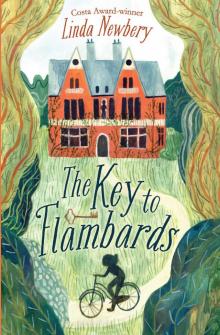 The Key to Flambards
The Key to Flambards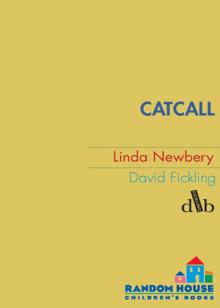 Catcall
Catcall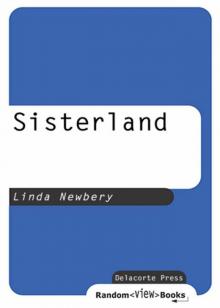 Sisterland
Sisterland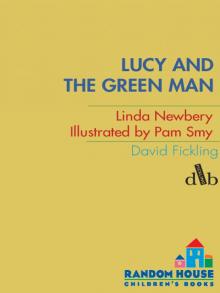 Lucy and the Green Man
Lucy and the Green Man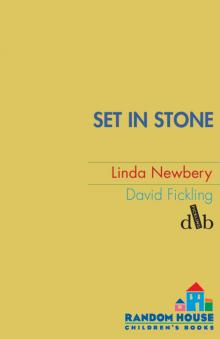 Set In Stone
Set In Stone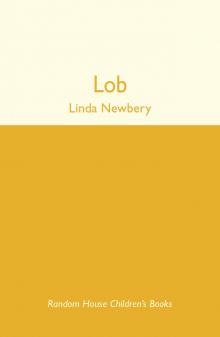 Lob
Lob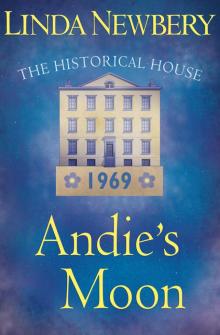 Andie's Moon
Andie's Moon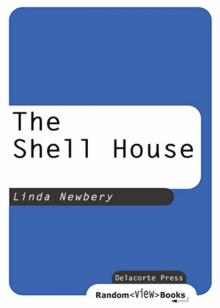 The Shell House
The Shell House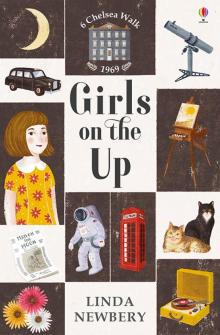 Girls on the Up
Girls on the Up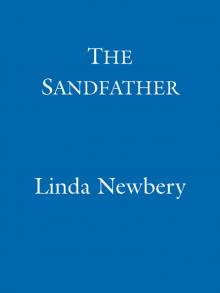 The Sandfather
The Sandfather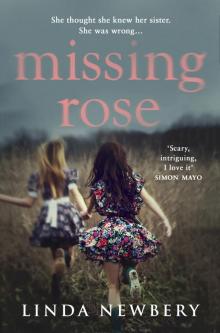 Missing Rose
Missing Rose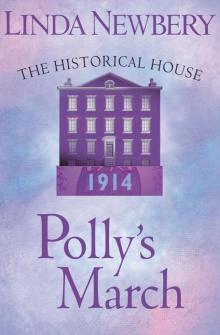 Polly's March
Polly's March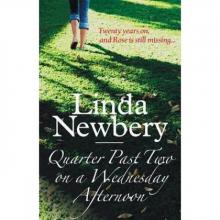 Quarter Past Two on a Wednesday Afternoon
Quarter Past Two on a Wednesday Afternoon Flightsend
Flightsend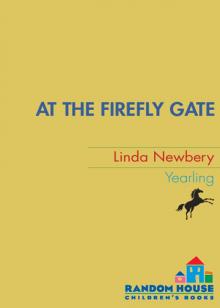 At the Firefly Gate
At the Firefly Gate